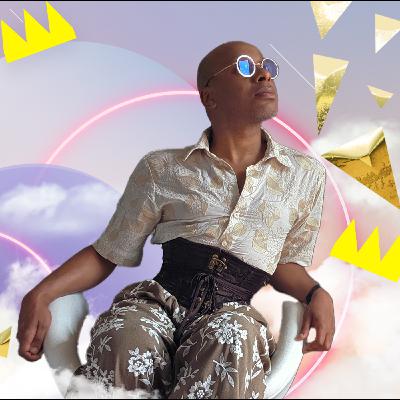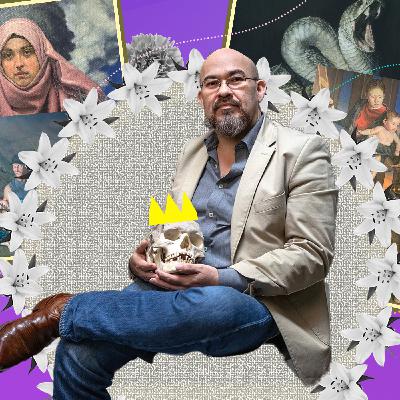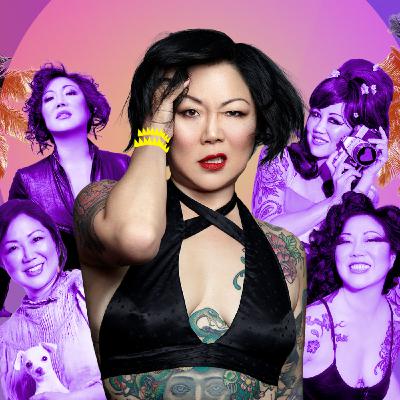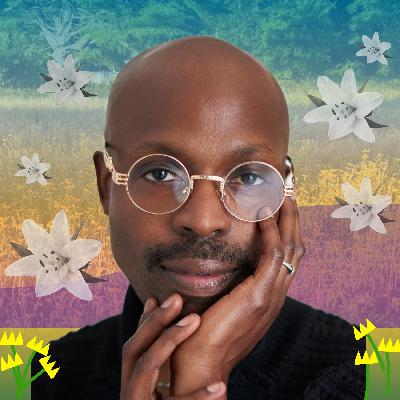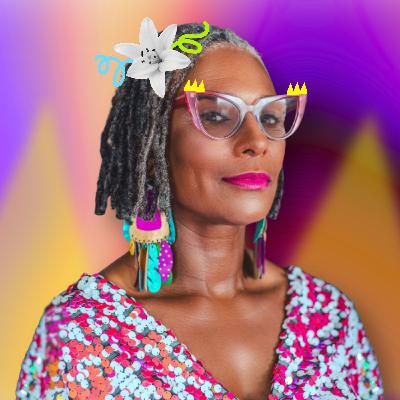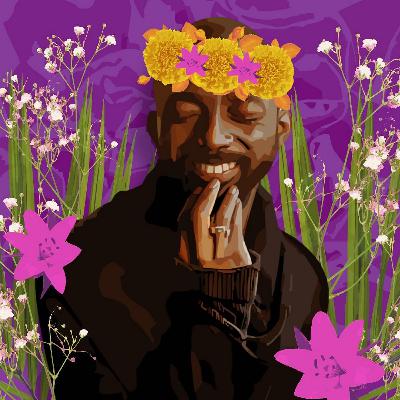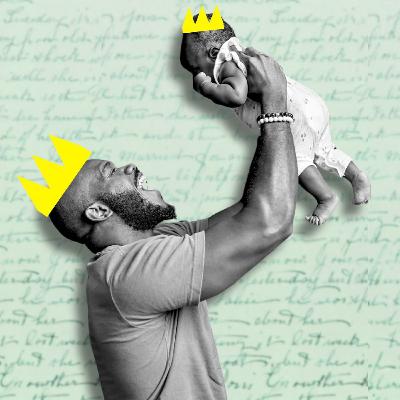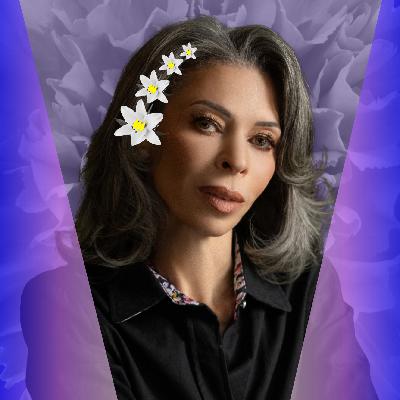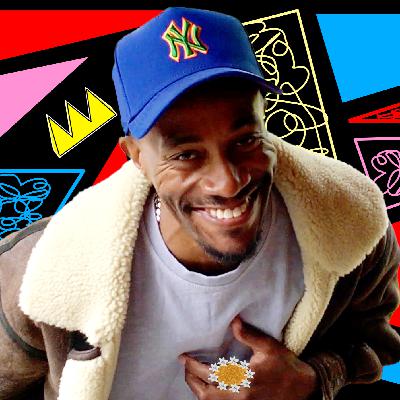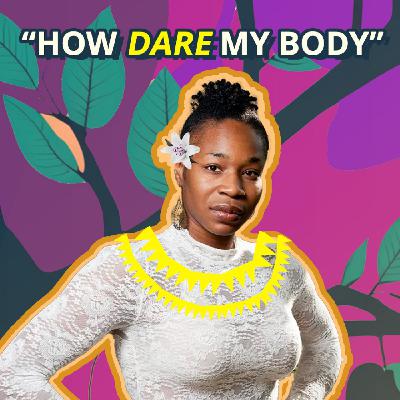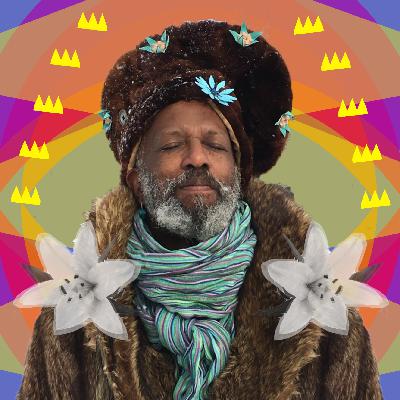Discover Homegoings
Homegoings

Homegoings
Author: Vermont Public
Subscribed: 22Played: 453Subscribe
Share
© Vermont Public
Description
'Homegoings' is a show that invites listeners to be a fly on the wall, privy to candid and genuine conversations about race. Host and musician Myra Flynn explores themes that fearlessly straddle that line between necessary and uncomfortable, as she speaks with artists, experts and regular folks all over the country about their literal skin in the game — of everyday life. 'Homegoings' is storytelling — with a heartbeat. No topic is off the table, and there’s no such thing as going “too deep.” These are the conversations that are our birthright to have, and the stories we are lucky to hear.
59 Episodes
Reverse
Cailin Marcel Manson is a conductor, baritone opera singer, and longtime vocal studies teacher who’s performed on some of the world’s biggest stages — from the Conservatoire de Luxembourg to Carnegie Hall. In this episode, we talk with Cailin about what it means to command a space long dominated by white men — armed with Black skin, a bit of Philly swagger, and a corset.Homegoings is a production of Vermont Public. Follow the show here.This episode was hosted and reported by executive producer, Myra Flynn and mixed by Sarah Baik. Our video director is Mike Dunn and Aaron Edwards is our story editor. Myra composed the theme music with other music by Blue Dot Sessions. Kyle Ambusk is the graphic artist behind this episode’sHomegoings portrait.Thank you for listening. You can see this episode on our YouTube channel.To continue to be part of the Homegoings family:
Subscribe to our YouTube channel
Sign up for the Homegoings newsletter
Write to us at: hey@homegoings.co
Follow us on Instagram @wearehomegoings
Make a gift to continue elevating BIPOC storytelling
Tell your friends, your family or a stranger about the show!
And of course, subscribe!
Nichole Hill is the award-winning showrunner and creator of Our Ancestors Were Messy, a 2024 Official Tribeca Audio Selection. Through her show, Nichole is pulling the rug out from under the pedestal we tend to put figures in Black history on. To her, people like Langston Hughes and Zora Neale Hurston were huge contributors to Black culture. But...they were also just people. Sometimes messy people. In this episode we chat with Nichole about the great responsibility that comes with telling our ancestors’ stories truthfully — flaws and all.Homegoings is a production of Vermont Public. Follow the show here.This episode was hosted and reported by executive producer, Myra Flynn and mixed by Burgess Brown. Our video director is Mike Dunn and Aaron Edwards is our story editor. Myra composed the theme music with other music by Blue Dot Sessions. Kyle Ambusk is the graphic artist behind this episode’s Homegoings portrait.Thank you for listening. You can see this episode on our YouTube channel.To continue to be part of the Homegoings family:
Subscribe to our YouTube channel
Sign up for the Homegoings newsletter
Write to us at: hey@homegoings.co
Follow us on Instagram @wearehomegoings
Make a gift to continue elevating BIPOC storytelling
Tell your friends, your family or a stranger about the show!
And of course, subscribe!
One night at a lesbian bar in New York City changed everything for 20-something Tiq Milan. A stranger handed him a flyer for a party celebrating something he’d never heard of before — transmasculine top surgery. In that moment, Tiq realized: “Ah! This is who I am.” After spending half his life living as a woman, Tiq transitioned at 22 and became the man he always knew himself to be.Homegoings is a production of Vermont Public. Follow the show here.This episode was hosted and reported by executive producer, Myra Flynn and mixed by Sarah Baik. Our video director is Mike Dunn and Aaron Edwards is our story editor. Myra composed the theme music with other music by Blue Dot Sessions. Kyle Ambusk is the graphic artist behind this episode’s Homegoings portrait.Thank you for listening. You can see this episode on our YouTube channel.To continue to be part of the Homegoings family:
Subscribe to our YouTube channel
Sign up for the Homegoings newsletter
Write to us at: hey@homegoings.co
Follow us on Instagram @wearehomegoings
Make a gift to continue elevating BIPOC storytelling
Tell your friends, your family or a stranger about the show!
And of course, subscribe!
In 2019, artist Rigoberto Gonzalez painted a large-scale painting depicting immigrants crossing the border in south Texas. That painting grew popular. Won an award, traveled the world, even got to hang in the Smithsonian. Now, he couldn’t show his work there if he tried.Homegoings is a production of Vermont Public. Follow the show here.This episode was hosted and reported by executive producer, Myra Flynn. Our video director is Mike Dunn and Aaron Edwards edited this episode with help from Angela Evancie. Myra composed the theme music with other music by Blue Dot Sessions. Kyle Ambusk is the graphic artist behind this episode’s Homegoings portrait.Thank you for listening. You can see this episode on our YouTube channel.To continue to be part of the Homegoings family:
Subscribe to our YouTube channel
Sign up for the Homegoings newsletter
Write to us at: hey@homegoings.co
Follow us on Instagram @wearehomegoings
Make a gift to continue elevating BIPOC storytelling
Tell your friends, your family or a stranger about the show!
And of course, subscribe!
Comedian Margaret Cho is back on tour with her bold, unapologetic take on the state of society. In this episode, we sit down with her to talk comedy, culture, and her new national tour, Choligarchy. A tour she describes as a comedic blueprint for a better future. Homegoings is a production of Vermont Public. Follow the show here.This episode was hosted and reported by Myra Flynn. Our producer/director is Mike Dunn and Aaron Edwards is our story editor. Myra composed the theme music with other music by Blue Dot Sessions. Kyle Ambusk is the graphic artist behind this episode’s Homegoings portrait.Thank you for listening. You can see this episode on our YouTube channel.To continue to be part of the Homegoings family:
Subscribe to our YouTube channel
Sign up for the Homegoings newsletter
Write to us at: hey@homegoings.co
Follow us on Instagram @wearehomegoings
Make a gift to continue elevating BIPOC storytelling
Tell your friends, your family or a stranger about the show!
And of course, subscribe!
In August of last year, Vermont Public, our organization, got a new CEO, Vijay Singh. He came to VP by way of two public radio stations in California and while this is Vijay's first time being a CEO, he has had a hand in leadership, and ushering companies through times of deep change. A skill that’s currently being tested as over a month ago, Congress voted to rescind more than $1 billion in federal funding for PBS and NPR. In this episode, Vijay sat down with Homegoings host Myra Flynn just two days after Vermont Public eliminated 15 positions and changed two full-time positions to part-time. This is their conversation. Homegoings is a production of Vermont Public. Follow the show here.This episode was hosted and reported by Myra Flynn. Our producer/director is Mike Dunn and Aaron Edwards is our story editor. Myra composed the theme music with other music by Blue Dot Sessions. Kyle Ambusk is the graphic artist behind this episode’s Homegoings portrait.Thank you for listening. You can see this episode on our YouTube channel.To continue to be part of the Homegoings family:
Subscribe to our YouTube channel
Sign up for the Homegoings newsletter
Write to us at: hey@homegoings.co
Follow us on Instagram @wearehomegoings
Make a gift to continue elevating BIPOC storytelling
Tell your friends, your family or a stranger about the show!
And of course, subscribe!
Back in February, Homegoings hosted a live event at Vermont Public studios that featured a conversation with sexologist Tyomi Morgan in front of a live audience. In this episode, we share highlights from that night and dig right into that tricky space where attraction meets fetishization, racial curiosity turns into racism, and how to overcome societal tropes, barriers and nasty stereotypes associated with race that can sometimes keep us from loving one another — better.Homegoings is a production of Vermont Public. Follow the show here.This episode was hosted and reported by Myra Flynn. Our producer/director is Mike Dunn and Aaron Edwards is our story editor. Myra composed the theme music with other music by Blue Dot Sessions. Kaylee Mumford is the graphic artist behind this episode’s Homegoings artist portrait.Thank you for listening. You can see this episode on our YouTube channel.To continue to be part of the Homegoings family:
Subscribe to our YouTube channel
Sign up for the Homegoings newsletter
Write to us at: hey@homegoings.co
Follow us on Instagram @wearehomegoings
Make a gift to continue elevating BIPOC storytelling
Tell your friends, your family or a stranger about the show!
And of course, subscribe!
In 2015, theatre director Jarvis Antonio Green founded JAG Productions, a theatre company that served as an artistic sanctuary for Black creatives in American theatre. Last year after losing venues and revenue, JAG took a final bow and closed its curtains for good. Soon after, Jarvis suffered other losses and heartbreak in his personal life that led to him uprooting his home, his craft and in a lot of ways — his identity. What happens when you’re just one life shift away from things breaking? And what does it look like to piece it all together again? In this episode we talk to Jarvis about a different kind of art he’s putting his energy into these days: The art of starting over.This episode was hosted and reported by Myra Flynn with help from our associate producer James Stewart. Our producer/director is Mike Dunn and Aaron Edwards is our story editor. Myra composed the theme music with other music by Blue Dot Sessions. Elodie Reed is the graphic artist behind this episode’s Homegoings artist portrait.Thank you for listening. You can see this episode on our YouTube channel.To continue to be part of the Homegoings family:
Subscribe to our YouTube channel
Sign up for the Homegoings newsletter
Write to us at: hey@homegoings.co
Follow us on Instagram @wearehomegoings
Make a gift to continue elevating BIPOC storytelling
Tell your friends, your family or a stranger about the show!
And of course, subscribe!
U.K. based Karen Arthur refuses to become invisible as she ages. On the contrary, she's brighter, bolder and more vibrant than ever. And she wants that confidence for other women who are aging – especially Black women. So, as host and founder of the podcast “Menopause Whilst Black” Karen is opening up a long-overdue conversation about the intersectionality of racism, aging and menopause.In this episode, Karen shares her journey of overcoming domestic abuse, mental health issues and generational cycles of trauma to arrive where she is today: 63, Black, in the midst of menopause and fabulous!Thank you for listening. You can see this episode on our YouTube channel.To continue to be part of the Homegoings family:
Subscribe to our YouTube channel
Sign up for the Homegoings newsletter
Write to us at: hey@homegoings.co
Follow us on Instagram @wearehomegoings
Make a gift to continue elevating BIPOC storytelling
Tell your friends, your family or a stranger about the show!
And of course, subscribe!
***A heads up: This episode discusses sensitive topics like suicide and self-harm***Joseph Awuah-Darko is a 28-year-old Ghanaian artist who announced last year that he was moving to Amsterdam to pursue what in the Netherlands is called “termination of life on request,” or euthanasia, amid a long struggle with bipolar disorder. That announcement shook the Internet. Joseph’s followers have reacted with every emotion from shock to disgust; commiseration to fascination. All in all, it’s one of those stories you feel you should look away from… But you can’t stop watching.Mainly because — shouldn’t this be private? Shouldn’t we be having conversations about mental health and death…more? We went to Amsterdam to have one of those conversations, over a meal. Homegoings is a production of Vermont Public. Follow the show here.This episode was hosted and reported by Myra Flynn with help from our associate producer James Stewart. Our producer/director is Mike Dunn and Aaron Edwards is our story editor. Myra composed the theme music with other music by Blue Dot Sessions. Kaylee Mumford is the graphic artist behind this episode’sHomegoings artist portrait.Thank you for listening. You can see this episode on our YouTube channel.To continue to be part of the Homegoings family:
Subscribe to our YouTube channel
Sign up for the Homegoings newsletter
Write to us at: hey@homegoings.co
Follow us on Instagram @wearehomegoings
Make a gift to continue elevating BIPOC storytelling
Tell your friends, your family or a stranger about the show!
And of course, subscribe!
Marc Pierre is a Haitian American father currently living in Birmingham, Alabama who responded to the crushing anxiety of being Black in America with a child on the way – by writing about it. Marc wrote letters to his son Myles even before he was born. Today, he shares them on Substack with over 4,000 subscribers from around the world, many of them fathers – who come for the joy and stay for the vulnerability. Homegoings is a production of Vermont Public. Follow the show here.This episode was hosted and reported by Myra Flynn with help from our associate producer James Stewart. Our producer/director is Mike Dunn and Aaron Edwards is our story editor. Myra composed the theme music with other music by Blue Dot Sessions. Kaylee Mumford are the graphic artist behind this episode’s Homegoings artist portrait.Thank you for listening. You can see this episode on our YouTube channel.To continue to be part of the Homegoings family:
Subscribe to our YouTube channel
Sign up for the Homegoings newsletter
Write to us at: hey@homegoings.co
Follow us on Instagram @wearehomegoings
Make a gift to continue elevating BIPOC storytelling
Tell your friends, your family or a stranger about the show!
And of course, subscribe!
We're talking soul-to-soul, and you're invited. In every episode, host Myra Flynn invites you to eavesdrop on candid conversations with people who will challenge what you think you know. Check out our latest episodes now on YouTube.Homegoings is a production of Vermont Public. Follow the show here.Thank you for listening. You can see a video version of this episode on our YouTube channel.To continue to be part of the Homegoings family:
Subscribe to our YouTube channel
Sign up for the Homegoings newsletter
Write to us at: hey@homegoings.co
Follow us on Instagram @wearehomegoings
Make a gift to continue elevating BIPOC storytelling
Tell your friends, your family or a stranger about the show!
And of course, subscribe!
Josh Lo is a husband, father and former pastor at a multi-ethnic, non-denominational Christian church in Southern California. (Emphasis on former). In this episode, Josh shares his calling to ministry, his life in the church and how what he witnessed there — the complicated intersection of power and religion — shifted his perspective entirely. He found himself turning away… not from God completely, but from the institution he once lived and breathed.Homegoings is a production of Vermont Public. Follow the show here.This episode was hosted and reported by Myra Flynn. Our producer/director is Mike Dunn and Aaron Edwards is our story editor. Myra composed the theme music with other music by Blue Dot Sessions. Elodie Reed, Kyle Ambusk and Kaylee Mumford are the graphic artists. Check out Elodie’s work in this episode’s Homegoings artist portrait.Thank you for listening. You can see a video version of this episode on our YouTube channel.To continue to be part of the Homegoings family:
Subscribe to our YouTube channel
Sign up for the Homegoings newsletter
Write to us at: hey@homegoings.co
Follow us on Instagram @wearehomegoings
Make a gift to continue elevating BIPOC storytelling
Tell your friends, your family or a stranger about the show!
And of course, subscribe!
Dr. V is a felon and a former stripper. In April of 2002 she was charged with theft and spent some time in prison. That journey led her to a life of hardship and consequences that still follow her today. But she owns her past. She embraces it. She’s even figured out how to use it – not only as a springboard toward a better life, but as a business model to land her where she is today: Helping other people do the same.Homegoings is a production of Vermont Public. Follow the show here.This episode was hosted and reported by Myra Flynn. Our producer/director is Mike Dunn and Aaron Edwards is our story editor. Myra composed the theme music with other music by Blue Dot Sessions. Elodie Reed, Kyle Ambusk and Kaylee Mumford are the graphic artists. Check out Elodie’s work in this episode’s Homegoings artist portrait.Thank you for listening. You can see a video version of this episode on our YouTube channel.To continue to be part of the Homegoings family:
Subscribe to our YouTube channel
Sign up for the Homegoings newsletter
Write to us at: hey@homegoings.co
Follow us on Instagram @wearehomegoings
Make a gift to continue elevating BIPOC storytelling
Tell your friends, your family or a stranger about the show!
And of course, subscribe!
Aman Itomi makes big, bold and noticeable jewelry worn by celebrities and gracing the covers of magazines. His nickname in his community of makers is “The Basquiat of metal.” But now Aman is bracing for uncertainty and scarcity as Trump’s tariffs on metals go into effect — again. In this episode, Aman shares how he’s preparing.Subscribe for more Homegoings videos: https://www.youtube.com/@Homegoings?sub_confirmation=1Follow us on Instagram: https://www.instagram.com/wearehomegoingsSign up for the Homegoings newsletter: https://www.homegoings.coWrite to us at: hey@homegoings.coMake a gift to continue elevating BIPOC storytelling: https://vermontpublic.org/donateTell your friends, your family or a stranger about the show!Homegoings is a production of Vermont Public: https://www.vermontpublic.org/
Marjani Forté-Saunders is a mother, choreographer, performer, community organizer and three-time Bessie Award winner. In this episode, Marjani speaks about the score a dancer’s body keeps, both on and off the stage. It’s a journey of acceptance, fearless expression and hard personal truths.Homegoings is a production of Vermont Public. Follow the show here.This episode was hosted and reported by Myra Flynn and edited by Aaron Edwards, with production support from Peter Engisch, Mike Dunn and our associate producer James Stewart. Myra composed the theme music with other music by Everett Asis and Blue Dot Sessions. Kaylee Mumford is the graphic artist behind this episode’s Homegoings artist portrait.Thank you for listening. You can see a video version of this episode on our YouTube channel.To continue to be part of the Homegoings family:
Subscribe to our YouTube channel
Sign up for the Homegoings newsletter
Write to us at: hey@homegoings.co
Follow us on Instagram @wearehomegoings
Make a gift to continue elevating BIPOC storytelling
Tell your friends, your family or a stranger about the show!
And of course, subscribe!
Kiran ‘Madame’ Gandhi gained notoriety as a drummer who toured the world drumming with superstar M.I.A., and as an activist — who ran the London City Marathon free bleeding while menstruating. In this episode, Kiran talks about leaning into the multidimensionality of our humanity and viewing our traumas as superpowers. In the end … we have no other option.Homegoings is a production of Vermont Public. Follow the show here.This episode was hosted and reported by Myra Flynn and edited by Aaron Edwards, with production support from Peter Engisch, Mike Dunn and our associate producer. Myra composed the theme music with other music by Kiran ‘Madame’ Gandhi, Blue Dot Sessions, and UPM. Kaylee Mumford is the graphic artist behind this episode’s Homegoings artist portrait.Thank you for listening. You can see a video version of this episode on our YouTube channel.To continue to be part of the Homegoings family:
Subscribe to our YouTube channel
Sign up for the Homegoings newsletter
Write to us at: hey@homegoings.co
Follow us on Instagram @wearehomegoings
Make a gift to continue elevating BIPOC storytelling
Tell your friends, your family or a stranger about the show!
And of course, subscribe!
Toussaint St. Negritude is a poet, teacher and musician who has chosen his own path and his own name. In this episode, Toussaint speaks about fierceness as a survival tool for Black queer men, like him, who were out and gay in the 1970s.Homegoings is a production of Vermont Public. Follow the show here.This episode was hosted and reported by Myra Flynn and edited by Aaron Edwards, with production support from Mike Dunn and James Stewart, our associate producer. Myra composed the theme music with other music by Toussaint St. Negritude and Blue Dot Sessions. Elodie Reed is the graphic artist behind this episode’s Homegoings artist portrait.Thank you for listening. You can see a video version of this episode on our YouTube channel.To continue to be part of the Homegoings family:
Subscribe to our YouTube channel
Sign up for the Homegoings newsletter
Write to us at: hey@homegoings.co
Follow us on Instagram @wearehomegoings
Make a gift to continue elevating BIPOC storytelling
Tell your friends, your family or a stranger about the show!
And of course, subscribe!
What is jazz? And who gets to call themselves a jazz musician? In this episode, host Myra Flynn sits down with renowned musicians Nicole "Lady" Wray, Adi Oasis and Melanie Charles to unpack how they are redefining the landscape of jazz on their own terms.Homegoings is a production of Vermont Public. Follow the show here.This episode was hosted and reported by Myra Flynn, with production support and direction from Mike Dunn. James Stewart is our associate producer and Peter Engisch was our sound designer. Myra composed the theme music with other music by Melanie Charles, Adi Oasis, Nicole “Lady” Wray and Blue Dot Sessions. Kaylee Mumford is the graphic artist behind this episode’s Homegoings artist portrait.Thank you for listening. You can see a video version of this episode on our YouTube channel.To continue to be part of the Homegoings family:
Subscribe to our YouTube channel
Sign up for the Homegoings newsletter
Write to us at: hey@homegoings.co
Follow us on Instagram @wearehomegoings
Make a gift to continue elevating BIPOC storytelling
Tell your friends, your family or a stranger about the show!
And of course, subscribe!
We released this episode, “Black birth, laboring for justice,” back in October 2023. At the time, we felt this episode was crucial to make because Black women had the highest maternal mortality rate in the United States. The CDC actually called it a crisis. We checked back in with this crisis to see what’s changed in two years, and learned that maternal deaths have dropped — just not for Black women. So, we figured it’s time to press play on this. Again. Homegoings is a production of Vermont Public. Follow the show here.This episode was mixed, scored and reported by Myra Flynn with support from our associate producer James Stewart and editing by Brittany Patterson. Myra Flynn composed the Homegoings theme music. “Mama Song” was also written by Myra Flynn with production from Tim Sonnefeld. Zoe McDonald and Elodie Reed are the graphic artists behind this Homegoings artist portrait. The CDC is working to help stop this crisis and save Black mothers. If you are in need of more information or help, give them a call at 1-800-232-4636. You do not have to navigate this alone.As always, you are welcome here. To continue to be part of the Homegoings family:
Sign up for the Homegoings newsletter
Write to us at: hey@homegoings.co
Make a gift to continue elevating BIPOC storytelling
Tell you friends, your family or a stranger about the show!
And of course, subscribe!


